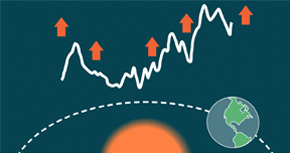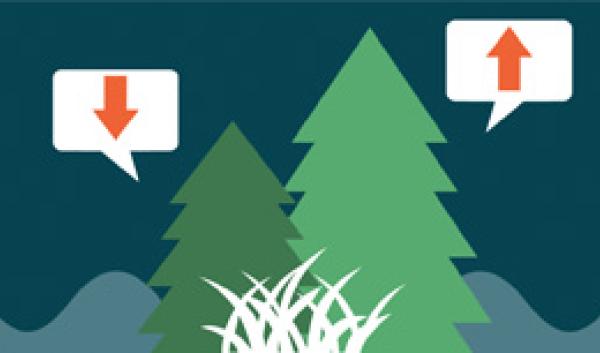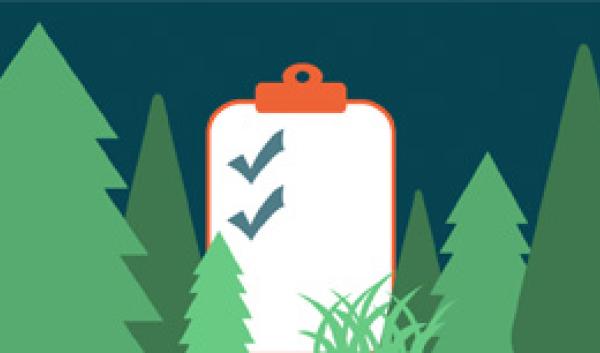Modules are currently unavailable
Apologies, the education modules are currently unavailable due to a technical issue. Links to updated modules presenting the same content will be available soon. In the interim, the education modules can still be accessed by USDA employees via AgLearn.

Climate Change Science and Modeling: What You Need to Know gives a brief overview of the climate system, greenhouse gases, climate models, current climate change impacts, and future projections. There is a 14-question activity at the end of the module, and users who complete the activity will receive a printable certificate with their name and the date completed. The expected time commitment for this module is about 20 minutes, plus the activity and time spent exploring the many outward links and interactive features at the user's discretion.
Learning Objectives
By the end of Climate Change Science and Modeling, users should know:- The three adaptation options: resistance, resilience, and transition
- Main greenhouse gases contributing to climate change
- How the greenhouse effect works
- The flow of carbon through the carbon cycle
- Examples of climate change impacts by region
- The components of climate models and the uncertainty associated with models
- Emissions scenarios storylines and representative concentration pathways
- Examples of projected future climate impacts
- Historic temperature changes in their region
- Projected temperature changes by mid-century and the end of the century for their region
- Current and projected impacts in their region
- General differences between high and low emissions scenario projections




